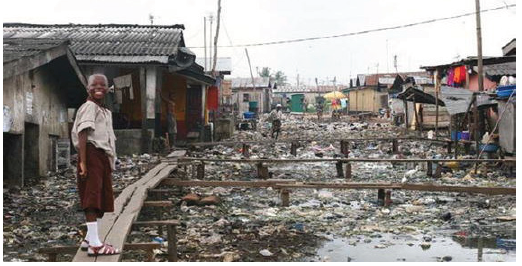Private Capital Alone Can’t Solve Nigeria’s Housing Crisis Experts Warn
At the launch of Shalom Park Estate Condominiums in Lagos, key players in Nigeria’s real estate sector sent a strong message to the government: the private sector cannot bridge the country’s 28 million housing deficit alone.
Speaking at the event, Oluremi Oshikanlu, CEO of IFTY Realty Limited and developer of the estate, explained that the rising cost of land, building materials, and regulatory hurdles had made it nearly impossible for private investors to deliver truly affordable housing without government backing.
“No private investor anywhere in the world can build low-cost housing alone. You need government support—through land provision, infrastructure, and low-interest mortgages—to make it work,” Oshikanlu emphasized.
Real Estate Locked in a Cash Trap
He criticized Nigeria’s heavy reliance on cash for real estate transactions, noting that it limits access to affordable housing and mortgages.
According to him, a 30-year mortgage plan at 6% interest, coupled with government-provided land and standard building designs, would cut construction costs significantly bringing homes down to a more affordable ₦20 million with ₦5 million profit margins.

Material Costs Are Skyrocketing
Oshikanlu gave a breakdown of the challenges developers face:
-
A truck of sand now costs ₦165,000
-
A single bag of cement is sold for ₦11,000
He advised developers to focus on building “housing shells” basic structures that buyers can later finish according to their preferences and budgets.
“Why install a ₦250,000 door when someone’s budget is ₦50,000? Finishing is about taste.”
Diaspora Dollars Are Driving the Market
Interestingly, Oshikanlu highlighted the impact of Nigerians abroad in the real estate sector.
“Diaspora remittances—not oil—are our biggest foreign exchange source. They’re reviving local towns like Ogbomosho, Epe, and Ijebu-Ode by funding estate development.”
However, he admitted this influx has widened the affordability gap for locals battling inflation and interest rates above 30%.
Developers Burdened by Multiple Levies
The IFTY Realty boss also detailed the strain developers endure due to government inaction.
“We pay all the levies, build the roads, install infrastructure, and still hand it over to utility companies—without any government support. That’s why housing is expensive.”
He pushed back against accusations that developers inflate prices, saying inflation and exchange rate instability often raise costs mid-project.
A Call for Public-Private Collaboration
Oluwatobi Ariremako, Business Development Manager at Shalom Park, reinforced the message: Nigeria’s housing challenge is too big for the private sector to fix alone.
“Even with capital and innovation, we’re stuck with land acquisition challenges, lack of basic infrastructure, and no access to long-term financing. This is why government partnership is key.”
He called for well-structured Public-Private Partnerships (PPPs), stressing that:
-
Government must provide serviced land and clear land titles
-
Infrastructure like roads, water, and electricity must be in place
-
Mortgage schemes must be accessible and realistic
A National Crisis Demands a National Solution
Both speakers agreed: if Nigeria is to make real progress in closing the housing gap, it needs strong political will, policy reforms, and strategic investment from both the government and private sector.
It’s not just about putting roofs over heads—it’s about driving economic growth, creating jobs, and restoring dignity to millions of Nigerians who still can’t afford a place to call home.



